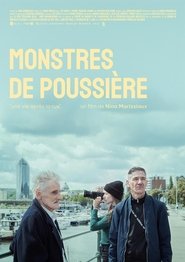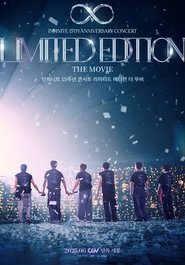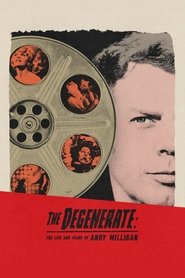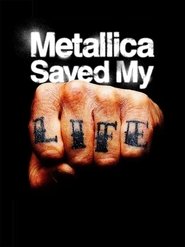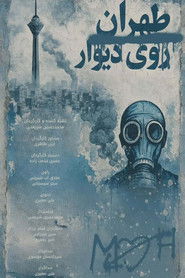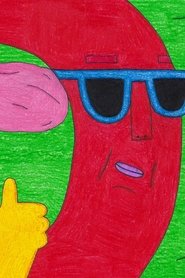New Documentary Movies - Page 275
-
Monstres de poussière
2025
star 6Johnny and Goyko were once homeless and are trying to tell their story in a film. It's not an easy road to rediscover the legitimacy of sharing your story. Together, we question the special bonds that documentary filmmaking creates. -
Третье место
2025
Третье место
2025
In the summer of 2024, the educational travel project for bartenders Simple Spirits Academy gathered brand ambassadors of Simple on a grand tour of Russian bars. 11 cities, iconic establishments, exchange of experience, lectures, and, of course, the drinks themselves, which were approached as a separate art form. -
Mireille and Antonio. À bout de petit souffle.
2025
Mireille Delmas-Marty, a visionary French lawyer, and Antonio Benincà, a passionate Italian artist, join forces and create a compass of possibilities to guide us through the chaos of the world. A deep friendship develops between them, nourished by their shared love of freedom. -
Our War
2025
Our War
2025
star 8Between February and April 2025, filmmakers Bernard-Henri Lévy and Marc Roussel filmed the Pokrovsk and Soumy fronts in eastern Ukraine, following the fighters of the Anne de Kyiv Brigade, armed by France. They filmed the daily lives of the inhabitants, bombarded by Russian forces terrorizing civilians on the eve of possible negotiations. They interview President Zelenskyy, who is reluctant to travel to Washington, and then watch the rebroadcast of the meeting with Ukrainian soldiers in a bunker. For the real heroes are the anonymous fighters and civilians who hold their heads high in the face of adversity and suffering, and who are filmed on a daily basis. The final part of Lévy’s “Ukrainian Quartet”, Our War is a diary, peppered with flashbacks in which the author recalls the high points of this war that began in 2014. -
Room to Move
2025
Room to Move
2025
Choreographer and performer Jenn Freeman has always possessed the gift of movement. From a very early age, she simply had to dance… all the time. But with that ever-present need to jump, leap, shake and squirm came a struggle to exist harmoniously in a world that seemed to assault her senses and sense of equilibrium at every turn. -
American Thunder: NASCAR to Le Mans
2025
star 6.6The documentary follows Hendrick Motorsports and NASCAR’s journey to compete with a NASCAR car in the 2023, 24 Hours of Le Mans, the race’s centennial. The film explores the technical challenges, preparation and public reaction to NASCAR’s participation in the iconic European endurance race. -
The Degenerate: The Life and Films of Andy Milligan
2025
Before unsung gay NYC exploitation maverick Andy Milligan died of AIDS, he cranked out grindhouse-ready shock and so-bad-it’s-good schlock movies throughout the late 1960s and ’70s. Yet, as captured in this fascinating documentary, his life and on-set persona were messy, complicated, and unforgettable. -
Cosmic Dawn
2025
Cosmic Dawn
2025
star 10For over three decades, NASA and an international team of scientists and engineers pushed the limits of technology, innovation, and perseverance to build and launch the James Webb Space Telescope, the most powerful space observatory ever created. Cosmic Dawn brings audiences behind the scenes with the Webb film crew, and never-before-heard testimonies revealing the real story of how this telescope overcame all odds. -
Blue Scuti: Tetris Crasher
2025
Thirteen-year-old Willis Gibson's life changes overnight when he becomes the first person in human history to beat Tetris. This coming-of-age story explores grief, the power of community and the rise of an unexpected internet legend. -
The Sixth Borough
2025
The Sixth Borough
2025
This vibrant documentary explores Long Island's indelible impact on hip-hop's evolution, told through the voices of pioneering artists who shaped the genre. The suburban landscape inspired a distinctive sound that expanded hip-hop beyond NYC, while also challenging the false promises of suburban utopia. -
Metallica Saved My Life
2025
From Award-winning director Jonas Åkerlund, “Metallica Saved My Life” explores the world of Metallica through the lives of their fans—including the bandmembers themselves—who have supported each other through highs, lows, trials, and triumphs for over four decades. -
Kees vliegt écht uit
2025
Kees vliegt écht uit
2025
star 7After the previous documentaries 'Kees vliegt uit' and 'Het beste voor Kees', Videoland is making another documentary about Kees Momma (59). In 'Kees really flies out', viewers will see him spread his wings from June 11. -
Llamarse Olimpia
2025
Llamarse Olimpia
2025
star 10Olimpia Coral Melo never set out to become a feminist icon. The humiliation of seeing her intimate video go viral made her want to abandon her own name. For thirteen years, she fought to pass a law against digital sexual violence in Mexico. Now, as the Olimpia Law gains momentum across Latin America, she must come to terms with her wounds and reclaim the name that shame once tried to take away from her. -
Tehran On The Walls
2025
Tehran On The Walls
2025
"Tehran on the Walls" is an attempt to present a different perspective on the current situation in Tehran and its challenges from various biological, social, and cultural aspects. Using the language of art and images, this film examines problems such as environmental pollution, social inequalities, and cultural changes, and seeks to establish a deep connection with the audience. -
Ř
2025
Ř
2025
Abigél came to the Czech Republic from Hungary with a super important goal: to learn how to pronounce the most difficult letter in the world ... rrrzs,rrr, rzsr rhz ... Ř! -
Paddy O'Brian - The Man Behind the Actor
2025
Irish Powerhouse. Born in East London and backed by Irish roots, Paddy O’Brian commands every space he enters. Unwilling to rely on anyone's approval, he carved his own path in the industry, driven by tireless training and a razor-sharp focus. Known for his unfiltered honesty and relentless work ethic, Paddy's unwavering love for his family remains the true anchor of his life. -
Off Field
2025
Off Field
2025
NRL stars Addo-Carr, Bateman, Olam and Kamikamica rose from humble beginnings worldwide to rugby league fame. Now they're using their success to give back to communities and create positive change globally. -
Hurtubise
2025
Hurtubise
2025
-
Roseanne Barr is America
2025
Roseanne Barr, America's original "domestic goddess," recounts the untold story of her unusual upbringing and comedy career, and exposes the twisted "cancel culture" that must be overcome for America to survive as a free nation.
 Netflix
Netflix
 Amazon Prime Video
Amazon Prime Video
 Apple iTunes
Apple iTunes
 Apple TV Plus
Apple TV Plus
 Disney Plus
Disney Plus
 Google Play Movies
Google Play Movies
 Paramount Plus
Paramount Plus
 Hulu
Hulu
 HBO Max
HBO Max
 YouTube
YouTube
 fuboTV
fuboTV
 Peacock
Peacock
 Peacock Premium
Peacock Premium
 Amazon Video
Amazon Video
 The Roku Channel
The Roku Channel
 AMC+
AMC+
 Kocowa
Kocowa
 Hoopla
Hoopla
 The CW
The CW
 Vudu
Vudu
 Starz
Starz
 Showtime
Showtime
 PBS
PBS
 Pantaflix
Pantaflix
 FXNow
FXNow
 Tubi TV
Tubi TV
 Kanopy
Kanopy
 Comedy Central
Comedy Central
 Crunchyroll
Crunchyroll
 Microsoft Store
Microsoft Store
 Redbox
Redbox
 Sun Nxt
Sun Nxt
 ABC
ABC
 DIRECTV
DIRECTV
 Crackle
Crackle
 Fandor
Fandor
 Plex
Plex
